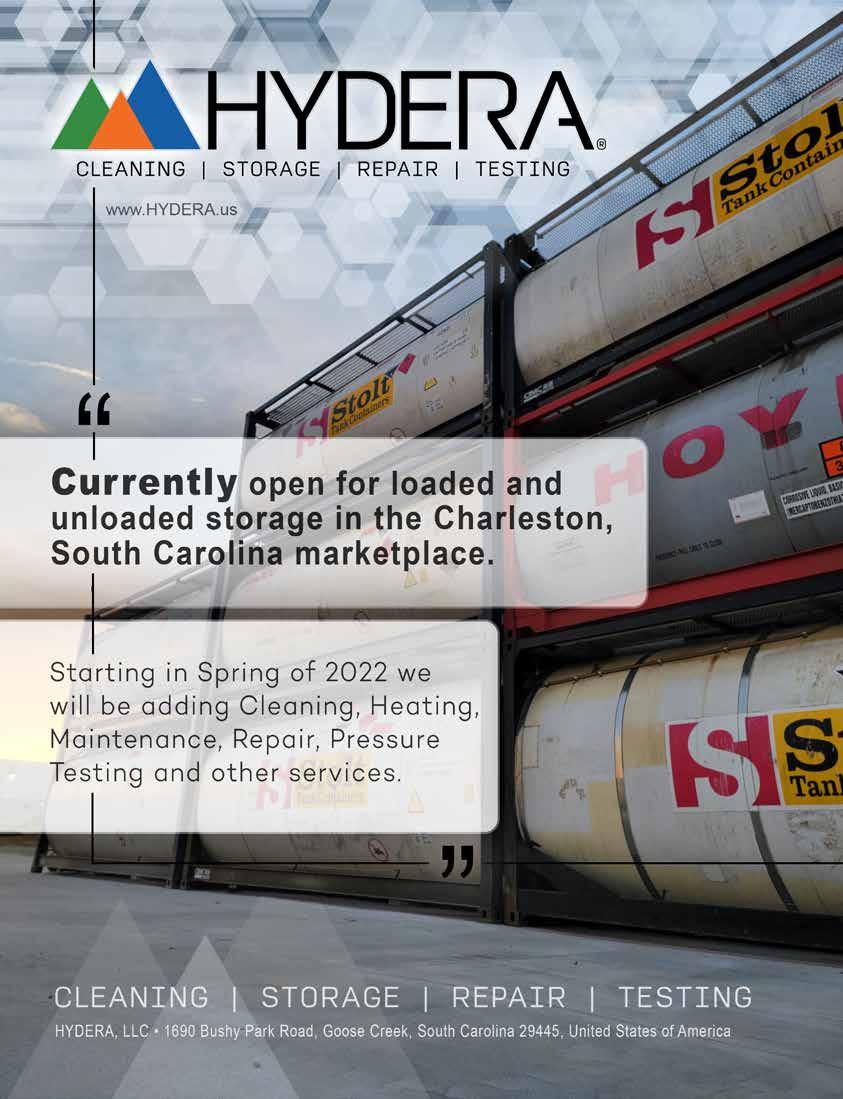
4 minute read
Letter from the Editor
from HCB December 2021
EDITOR’S LETTER
AS WE ROLL TOWARDS the end of 2021, it is traditional to look back at the year just gone and consider what we have learned from it. Unfortunately, the global pandemic but the brakes on a lot of business, especially the business of getting around and meeting people. Recently, event organisers have seemed more optimistic that things are changing and that we can begin to get together again, though the sudden emergence of the Omicron variant of Covid-19 has prompted the re-imposition of travel restrictions.
So, to answer the question posed above: what we have learned from the year 2021 is that we don’t really know what’s round the corner.
That uncertainty was clearly evident in global supply chains, disrupted all around the world by a wide range of different factors. Covid restrictions caused closures and personnel shortages, varying from place to place and often creating sudden bottlenecks. There was the well-documented shortage of ocean shipping capacity, reflecting a significant increase in cargo volumes to meet consumer demand at a time when the measures put in place by the liner operators to address over-capacity (following the Hanjin bankruptcy) were starting to have an effect. There has also been the growing impact of the chronic shortage of heavy goods vehicle drivers, evident in all the main mature markets; this has been a threat for decades but it is now reaching a crisis as existing drivers retire or are tempted away to the increasingly well paid jobs in home delivery transport.
All this has been going on in an environment of high energy prices alongside an overriding commitment to sustainability and the approaching energy transition. That has given all those involved in the supply chain an endless stream of headaches – but that is exactly what logistics experts are used to dealing with.
Meanwhile, shippers and receivers have been changing their behaviour in response to the problems they are facing. In conversation with executives from both ends of the chain recently, it seems clear that many are looking at existing sourcing and inventory procedures and finding that they are contributing to greater uncertainty. The result of that review is a turn towards on- or near-shoring of supply and, very often, multi-sourcing. Buyers can no longer rely on a single supplier, given the assorted barriers that have grown up, and are seeking active alternatives.
Consequently, supply chains have had to adapt and the flexibility and expertise that logistics service providers can offer has become more valuable. We are hearing more and more that the traditional annual bidding round is now giving way to longer-term relationships between shippers and logistics firms. That is something that the logistics side of the bargain has been calling for for many years and it is rather ironic that it has taken such a crisis for the shipper side to see the other point of view.
Will that sort of relationship last once we get back to normal? Will we, indeed, ever get back to ‘normal’? It seems unlikely in the near term and what the past year has taught shippers in particular is that just-in-time is no longer enough to secure their commercial viability: ‘just-in-case’ is the approach to be taken. The balance has shifted now and logistics providers at last have an equal place at the negotiating table.

CONTENTS
VOLUME 42 • NUMBER 11
UP FRONT Letter from the Editor
30 Years Ago Learning by Training 01
04
05
TANKER SHIPPING Up with demand Gas tankers respond to pricing 06
Down in the hole Dan-Unity ready for CO2 shipping 09 Look to the east Odfjell consolidates in deep sea 10 Take the plunge Hafnia buys CTI fleet 11 The right course Stolt Tankers reduces footprint 12 Stay afloat BASF addresses low water shipping 13 News bulletin – tanker shipping 14
TSA INSIGHT Quarterly magazine from the Tank Storage Association after page 15 STORAGE TERMINALS Making the chain GES lays plans for Europoort 16
All change please Vopak ready to hand over 18 News bulletin – storage terminals 20
TANKS & LOGISTICS Listen up! EPCA talks green finance Let’s swap tanks Suttons takes Tanktainer 22
26
Now’s the time Labelmaster takes talk to C-suite 28 Free at last SNCF sells Ermewa 30 Express delivery Chemical Express opts for IMT 32 Well equipped New kit from Fort Vale 34 News bulletin – tanks and logistics 36
COURSES & CONFERENCES Conference diary 39 SAFETY Incident Log Intelligent freight Adding DG to ERP
REGULATIONS Leftover dishes UN experts clean up proposals
BACK PAGE Not otherwise specified
NEXT MONTH Storage terminals – equipment and construction Tank container and road tanker equipment Sustainability and digitisation Outlook for regulation
Managing Editor Peter Mackay, dgsa Email: peter.mackay@chemicalwatch.com Tel: +44 (0) 7769 685 085
Advertising sales Sarah Smith Email: sarah.smith@chemicalwatch.com Tel: +44 (0) 203 603 2113
Publishing Manager Sarah Thompson Email: sarah.thompson@chemicalwatch.com Tel: +44 (0) 20 3603 2103 Publishing Assistant Francesca Cotton
Senior Designer Harrison Tanner
Chief Operating Officer Stuart Foxon
Chief Commercial Officer Richard Butterworth CW Research Ltd Talbot House Market Street Shrewsbury SY1 1LG ISSN 2059-5735 www.hcblive.com
HCB Monthly is published by CW Research Ltd. While the information and articles in HCB are published in good faith and every effort is made to check accuracy, readers should verify facts and statements directly with official sources before acting upon them, as the publisher can accept no responsibility in this respect.
©2021 CW Research Ltd. All rights reserved










